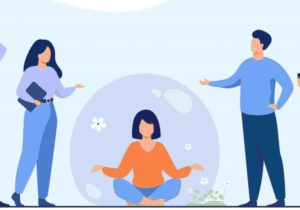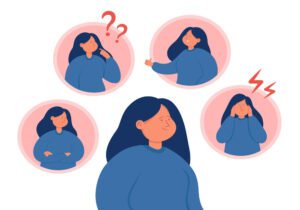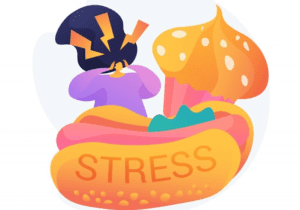Validation: How To Do That ?
This article has been researched and written by Dalea Alawar. AI has not been used in producing this article.
This article will discuss what validation means, what it does not mean, and how to effectively use it as a tool to communicate effectively. Validation, in the context of communication, means to acknowledge what a person is feeling, thinking, or experiencing so that the person can feel understood and heard. The experience of feeling understood and heard can lead to powerful effects. It helps regulate emotion, decrease defensiveness, build trust and safety, and it encourages cooperation. So, to validate someone is extremely beneficial to both people. But it’s not easy! Let’s talk about how to do validate effectively. In my therapy practice, I frequently find that the most common reasons that someone does not want to validate their partner/friend/family member, are because they think that validating them would mean they agree with what the other person is doing, thinking, or feeling, or because they fear that validating them would make the other person feel even worse.
However, this is not what validation is. Below is an example of what validation would look like:
Person 1: I’m really upset that you forgot my birthday. It’s as if you don’t care about me
Person 2: You’re right, I did forget your birthday. And I can completely understand why that would be upsetting, especially if you believe that it means I don’t care. I really am sorry that I forgot about it. It’s not because I don’t care, it’s because I have been so overwhelmed with work and family that days are passing by so quickly, and I’m actually forgetting many important things. Let me try to make it up to you by taking you out to dinner.
Take note that Person 2 did not agree that forgetting Person 1’s birthday means they don’t care. They just acknowledged Person 1’s experience.
Here is another example:
Person 1: I am so angry that my sister sent me this text! I don’t want to speak to her again!
Person 2: I would be pretty angry if I got a text like that. I can understand why you wouldn’t want to speak to her again. I think I would have a thought like that too. I think it might be best to wait until you are not so angry anymore to decide if you should stop talking to her, because that is a very big decision.
Take note that Person 1 did not encourage Person 2 to stay angry. Acknowledging that it makes sense for someone to feel a certain way is not the same as telling them they should continue to feel that way and that this feeling should dictate their behavior.
Overall, validation does not mean that you are telling someone they are “ right”. It means that you are putting the effort to put yourself in their situation and can see why they may be feeling a certain way.
Validation reflects empathy and helps build a connection with others, because we all want to feel understood and heard.
Stress vs. Anxiety vs. Burnout: How to Recognize the Difference
In today’s fast-paced world, understanding the differences between stress, anxiety, and burnout is crucial for …
Relocation Depression: Definition and Ways to Cope
Relocation depression, also known as moving depression, is a form of situational depression that arises from the stress …
How to Help Your Child with Anxiety Through Divorce
Divorce is a significant change that affects every member of a family. For children, the uncertainty and adjustments …
Depression vs Sadness: Understanding the Difference
While often used interchangeably, the terms “sadness” and “depression” represent distinct emotional states, each with …
5 Simple Mental Health Practices for Your Everyday Life: Nurturing Your Body & Mind
In today’s fast-paced world, it’s becoming increasingly evident that we need to place our mental health at the forefront
Ways to Reduce Anxiety in 2024
As we say farewell to 2022 and usher in the New Year, we look towards the future. With New Year’s resolutions on the docket, many of us are striving to achieve a calm life …
Navigating Compassion Fatigue in the Digital Age: A Call to Prioritize Mental Well-Being
Amid the constant stream of information and images that flood our screens, the toll on our mental well-being can be …
The Link Between Anxiety and Overeating
All of us have encountered moments of stress and unease throughout our lives. These feelings of anxiety not only bring…
10 Steps To Fix A Toxic Relationship
Every relationship has its fair share of ups and downs, but when toxicity creeps in, it can become a serious challenge. Toxic relationships can be emotionally draining and detrimental to our overall …
Exploring the Benefits of EMDR Therapy for Anxiety and Depression
Anxiety and depression are two of the most common mental health disorders worldwide, affecting millions of people every year. While traditional talk therapy and medication can be …











